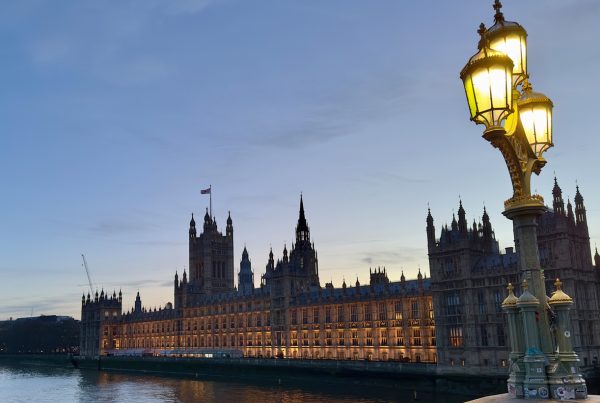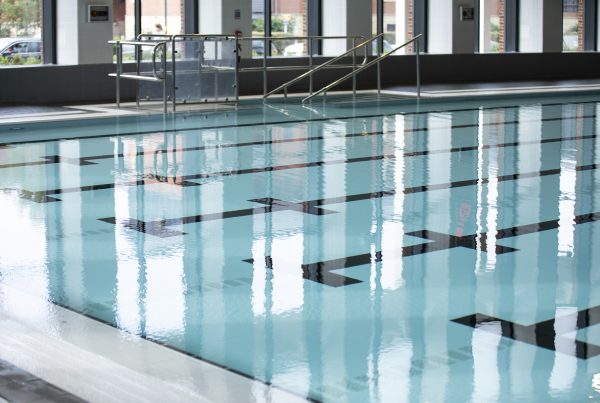Public health initiatives must help raise awareness of social prescribing in gyms, pools and leisure centres in order to reduce the pressure on the NHS, according to a new report published by ukactive today (12 January).
The report, called ‘Leading the Change: social prescribing within the fitness and leisure sector’, calls for the Government and its agencies to help unlock the potential of fitness and leisure facilities to serve more people through social prescribing.
The report, sponsored by Matrix, makes four key recommendations to develop and grow social prescribing within the fitness and leisure sector so it can play its fullest role in improving the health and wellbeing of the nation. ukactive will share the findings and recommendations from the report with the Government and key stakeholders in the wider network, to drive action and support.
Social prescribing connects people to community support based on what interests them, and helps address issues affecting their health and wellbeing. Working alongside GPs, social prescribing link workers connect people to activities such as fitness groups, swimming, walking, dancing, running, or gardening, depending on what the person likes and what will benefit them.
The fitness and leisure sector already plays a major role in community healthcare, such as providing rehabilitation from COVID-19 and cardiac, pulmonary and musculoskeletal conditions, as well 66% of the nation’s cancer prehabilitation and rehabilitation services. Research has also shown that people who were regularly active reduced their risk from dying from infectious diseases such as COVID-19 by 37% – including a study from Glasgow Caledonian University.
However, social prescribing offers a major opportunity to further support health in community settings.
The ukactive Research Institute undertook a consultation with ukactive’s members to understand the current landscape for social prescribing and found that the sector has considerable untapped potential which would reduce the burden on the NHS.
The recommendations:
- Raise awareness of the role of gyms, pools and leisure centres in social prescribing: The Office for Health Improvement and Disparities, The Richmond Group, Sport England and ukactive should collaborate to increase visibility of sector in social prescribing opportunities, focus on management of long-term health conditions and integrate with physical activity public health initiatives.
- Increase the knowledge of social prescribing among the physical activity workforce: Operators should ensure their workforce has strong awareness and knowledge of social prescribing, through training and using professional standards.
- Connect more gyms, pools and leisure facilities to community networks: National Academy for Social Prescribing, Active Partnerships, and Sport England need to work with ukactive to create resources that support sector to increase connection with cultural and community groups within local areas, which will provide opportunities for greater cross-sector partnerships.
- Align the sector-wide measurement of social prescribing to NHS England’s Common Outcomes Framework: ukactive, Sport England, NASP, and OHID to work collaboratively to improve data collection, ensuring consistent reporting and alignment with NHS England’s Common Outcomes Framework for measuring the impact of social prescribing.
Although the COVID-19 pandemic has delayed the sector’s ambitions which were originally outlined in 2020, social prescribing remains a priority area and the recommendations represent the next steps for progress in 2022.
Delivery of social prescribing across the sector will play an integral part in ukactive’s proposed shared ambition for growth with the Government and partners, which would see more than five million new members of gyms, pools and leisure centres by 2030 – an increase from 15% of the population in 2019 to more than 20%.
Huw Edwards, CEO of ukactive, said: “As our NHS comes under even greater pressures and the backlog for treatment grows, it is essential that we look differently at how healthcare-related physical activity could be delivered in gyms and leisure centres within our communities.
“We publish this report at a critical moment for the future of our nation’s health, happiness and wellbeing, and we must ensure that every gym, pool and leisure centre is supported to survive the current financial crisis in order to fulfil their essential role in preventative health.
“Our findings indicate a strong desire and huge potential to expand social prescribing delivery within the fitness and leisure sector, but we will need the full support of the Government and its agencies to support our sector, unlock the appropriate funding mechanisms, and raise awareness of these services in our facilities.
“We will continue to work tirelessly with our partners in the health and social care world so we can realise the full potential of social prescribing within our sector and achieve our shared ambitions.”
James Sanderson, CEO, National Academy of Social Prescribing, said: “Physical activity is often described as a ‘wonder drug’ because of the wide range of health conditions it can help prevent or treat. But for many of us, there are barriers to participating in sport or fitness activities – and that’s where social prescribing can make a real difference.
“This report demonstrates some of the good work that’s already happening in this area, but it’s also clear that there’s more to do to raise awareness about social prescribing in the sport and leisure sectors, and to ensure that providers have the resources and knowledge they need.
“We look forward to working with ukactive and other partners to help providers connect with social prescribing link workers and community groups. By working together, we can ensure that more people are able to get active in a way that meets their needs and preferences.”
Tim Graigner-Smith, Head of Sales – Regional at Matrix Fitness UK, said: “At Matrix Fitness, we’re passionate about helping people lead happier, healthier lives and we recognise that the health system isn’t a one-size-fits-all model and huge benefits exist when we work together.
“We hope this consultation will really highlight how the fitness and leisure industry can provide supportive services to help improve the health and wellbeing of those who really need it through social prescribing.”
To download the full report please click here

More People More Active More Often




